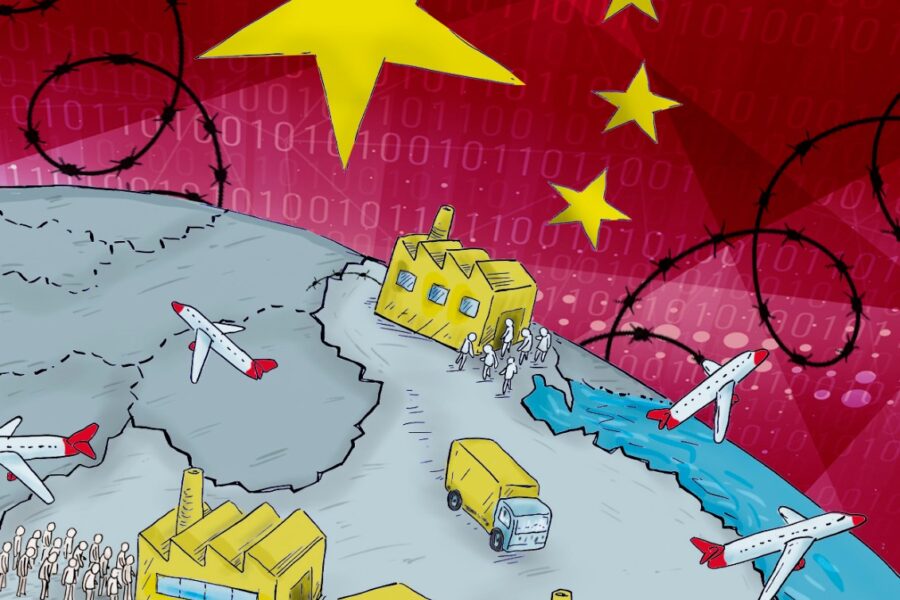
In this third and last report on Shein and Temu, we analyse the impact of the Chinese government and the Chinese Communist Party on the two corporations’ business conduct. Based on publicly disseminated government documents, work reports, and online articles, this study brings to the fore two risk areas – global logistics and industrial poverty alleviation programmes.
Shein and Temu’s rapid growth and competitive edge is in part owed to state-sponsored leverage. The two brands are at the vanguard of the government’s initiative to transition away from supplying foreign brands and towards directly connecting Chinese producers with global consumers. In this context, Shein and Temu capitalise on a global logistics network sponsored and controlled by the Chinese Party State.
Our findings show that Shein in Temu are entangled in China’s forced labour regime. Due to their key role in the construction of a large-scale industrial park, Shein and Temu are poised to channel Xinjiang cotton into global consumer markets. The park relies on local and central government support and represents a cornerstone in a political plan to integrate Xinjiang’s cotton production and processing base with garment manufacturing clusters in Guangdong.